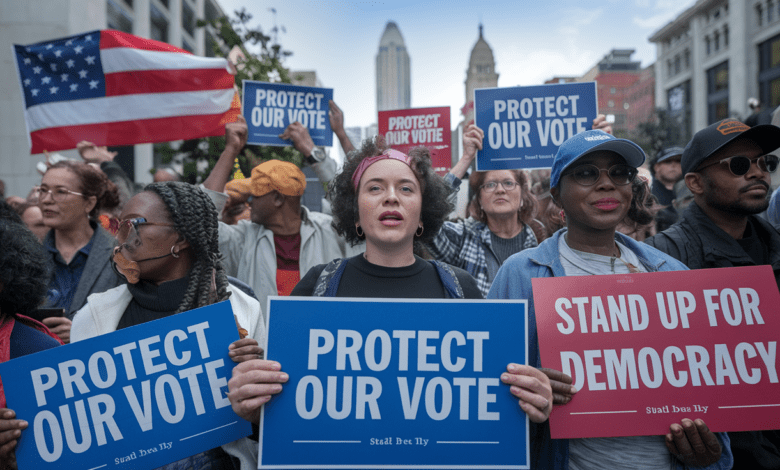
Introduction: A Troubling Start to Voting in 2024
As the countdown to the 2024 presidential election begins, an alarming development has surfaced in Georgia, a key battleground state. On the very first day of in-person voting, the Georgia election board—dominated by pro-Trump members—passed controversial new rules that could lead to chaos on election night. These decisions have sparked significant concern among election officials, poll workers, and citizens alike.
Voter Turnout Kicks Off Amid New Controversies
With early voting already underway in states like Minnesota, South Dakota, and Virginia, Georgia’s election board chose to implement rules that many believe serve no purpose other than to disrupt the voting process. With just 46 days before the election, these new regulations are raising alarms about their potential impact on voter turnout and election integrity.
New Rules Introduced by a Pro-Trump Majority
In a startling move, the Georgia election board approved several new regulations, one of which mandates a hand count of all ballots after polls close on November 5th. This rule, pushed through despite significant pushback from state officials—including Republican Secretary of State Brad Raffensperger—has been described as likely exceeding the board’s authority.
Oprah’s Interview with Kamala Harris: Out of Touch or Insightful?
Concerns from Election Officials and Poll Workers
As reported by The Washington Post, the logistics of conducting a hand count in a state as populous as Georgia are daunting. Election supervisors have expressed that such a requirement could be physically impossible in all but the smallest counties. With insufficient training and resources, many officials are concerned that the implementation of these new rules will lead to widespread chaos during what is already a high-stakes election.
The Risks of Hand Counting Ballots
Research consistently shows that hand counting ballots can lead to inaccuracies compared to machine tallies. The challenges posed by hand counting can extend the election process for days or even weeks, as seen during the lengthy audit in Maricopa County, Arizona, which took over two months. With Georgia’s electoral votes crucial in a tight race, any delays could potentially overturn the results and plunge the state—and the nation—into further political turmoil.
A Strategic Move to Disrupt the Electoral Process?
Many observers argue that these last-minute rule changes are designed to sow confusion and chaos, particularly in a state where both major party candidates are statistically tied. Delaying the certification of Georgia’s crucial 16 electoral votes could significantly alter the outcome of the presidential race, effectively benefiting Trump and his supporters.
India’s Emerging Leadership in QUAD: US Official Statement Sparks Global Discussions
Legal Challenges Loom
Legal experts predict that the introduction of these new rules could lead to a series of lawsuits. If Georgia’s election results are not certified, the ramifications could cascade through the electoral process, jeopardizing not only the state’s electoral votes but also the entire election outcome.
Historical Context: Voter Suppression Tactics
This latest move is reminiscent of historical voter suppression tactics aimed at disenfranchising particular groups. The focus on hand counting in densely populated areas, such as Fulton County, raises concerns about targeting regions with higher concentrations of minority voters, which could lead to unequal access to the electoral process.
Public Reaction and Advocacy for Change
As these developments unfold, public reaction has been swift. Advocacy groups are calling for transparency and fairness in the electoral process. Citizens are urged to remain vigilant and engaged in the political discourse to ensure their voices are heard.
Conclusion: The Call for Clarity and Integrity
As voters begin to cast their ballots, the integrity of the electoral process is more critical than ever. The recent moves by the Georgia election board raise significant questions about transparency and fairness. With the potential for chaos looming, it is essential for state officials, election workers, and citizens to advocate for a voting process that is not only secure but also straightforward.
For those concerned about the future of democracy, staying informed and involved is crucial. The upcoming weeks will be vital as we navigate these unprecedented challenges leading up to the election.






One Comment